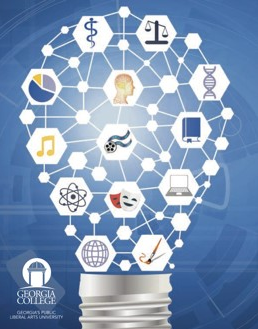Bisexual Student's Experiences With Biphobia
Abstract
Acceptance from peers is a desirable experience by many, especially those of minority groups, including sexual minorities. Members of the queer (LGBTQ+) community are often stigmatized due to their sexual orientation. Research on biphobia is crucial, for, as noted by Herek (2002), it is difficult to fully understand the experiences of bisexuals because most prior studies have either excluded bisexuals completely or lumped them in with other sexual minorities. For this project, biphobia was defined as the dislike of, discrimination, or prejudice against bisexual people. Previous research has shown the unique experiences with dislike, prejudice, and discrimination that self-identified bisexuals face, such as the eroticization of female bisexuals (Yost & Thomas 2012). The goal of this study is to understand biphobia through the experiences of students. This research utilized qualitative one-on-one interviews with six individuals, transcription of the interviews, and quantitative coding to substantiate the trends discovered through the interviews. Trends coded for include, but are not limited to, the hyper sexualization of bisexuality, verbal assault, and the invalidation of bisexuality. Through this research, descriptive data could assist Georgia College and State University in fostering a welcoming and positive environment for all of its students, including sexual minorities.
Bisexual Student's Experiences With Biphobia
Acceptance from peers is a desirable experience by many, especially those of minority groups, including sexual minorities. Members of the queer (LGBTQ+) community are often stigmatized due to their sexual orientation. Research on biphobia is crucial, for, as noted by Herek (2002), it is difficult to fully understand the experiences of bisexuals because most prior studies have either excluded bisexuals completely or lumped them in with other sexual minorities. For this project, biphobia was defined as the dislike of, discrimination, or prejudice against bisexual people. Previous research has shown the unique experiences with dislike, prejudice, and discrimination that self-identified bisexuals face, such as the eroticization of female bisexuals (Yost & Thomas 2012). The goal of this study is to understand biphobia through the experiences of students. This research utilized qualitative one-on-one interviews with six individuals, transcription of the interviews, and quantitative coding to substantiate the trends discovered through the interviews. Trends coded for include, but are not limited to, the hyper sexualization of bisexuality, verbal assault, and the invalidation of bisexuality. Through this research, descriptive data could assist Georgia College and State University in fostering a welcoming and positive environment for all of its students, including sexual minorities.



